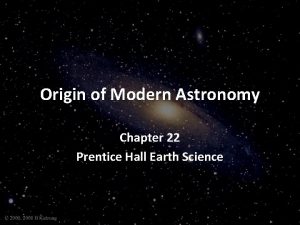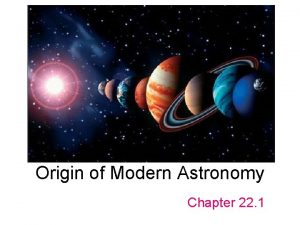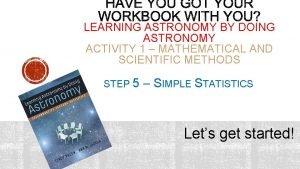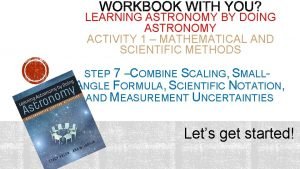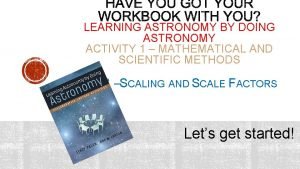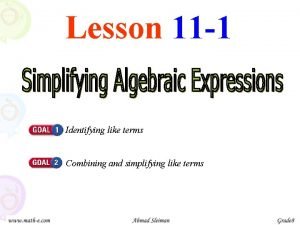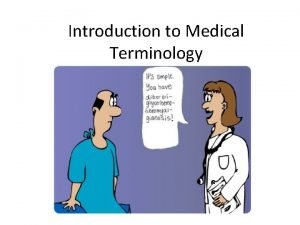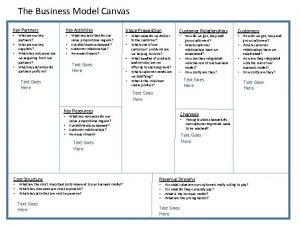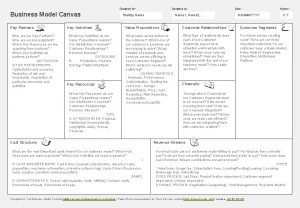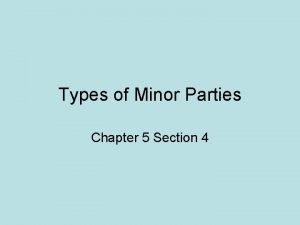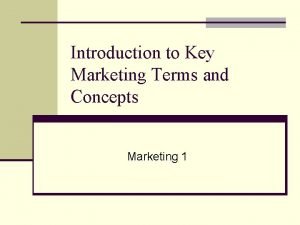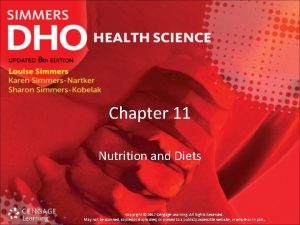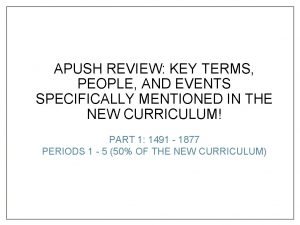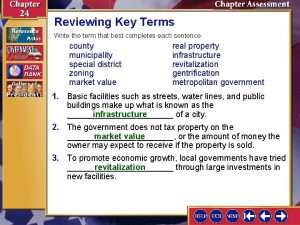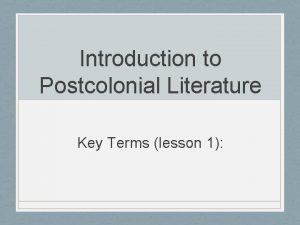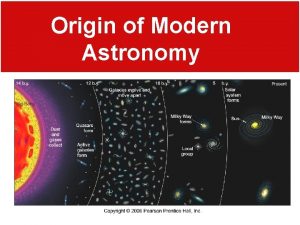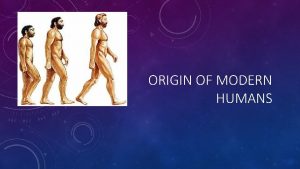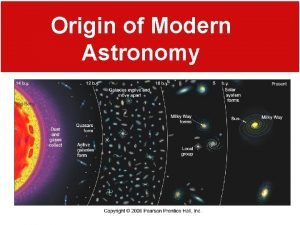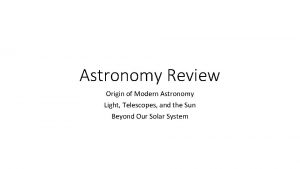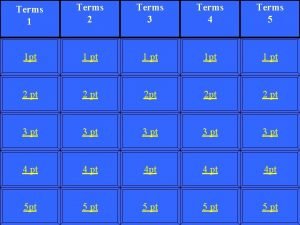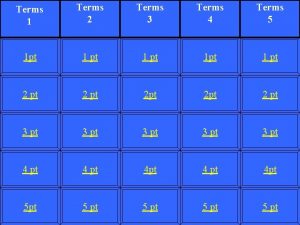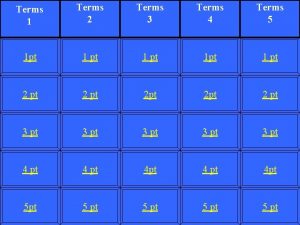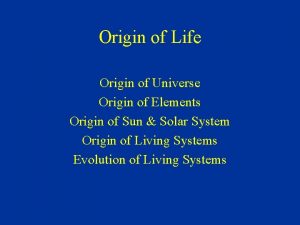Origin of Modern Astronomy Key Terms 1 Astronomy
















- Slides: 16

Origin of Modern Astronomy

Key Terms 1. Astronomy – It is the science that studies the universe. It includes the observation and interpretation of celestial (spatial) bodies and phenomena. 2. Geocentric Theory - Earth centric Universe 3. Heliocentric Theory – Sun centric Universe 4. Gravity - the force that attracts a body toward the center of the earth, or toward any other physical body having mass. 5. Inertia – The tendency of an object to resist a change in motion. 6. Observatory – A building that contains one or more telescopes.

Geocentric Theory Ancient Greece

Geocentric Model: Ptolemy (87 -150 AD) Used epicycles to explain planetary movements


The Birth of Modern Astronomy Copernicus - 1473 -1543 Ø Suggested a model that the Sun was the center of the universe. Ø This model explained the retrograde motion of planets better than the geocentric model.

Heliocentric Theory


The Birth of Modern Astronomy Tycho Brahe Johannes Kepler - 1546 -1601 v the greatest of the pretelescope observers in Europe. v. His measurements about the , positions of Sun, Moon and planets, especially of Mars, were far more precise than any made previously.

Johannes Kepler - 1609 • Kepler was an assistant to Tycho Brahe. • He used Brahe’s observations to study the orbit of Mars • Discovered three laws of planetary motion: predict with accuracy the motions of the planets.

Galileo - 1564 -1642 v first scientist to use a telescope to observe the sky. v observed the phases of Venus and the moons of Jupiter. Both observations supported the heliocentric model.

Sir Isaac Newton – 1642 -1727 q English scientist q explained gravity as the force that holds planets in orbit around the Sun.

Gravity’s Influence on Orbits

Gravity • Gravity is the force that – holds us to the Earth – causes a rock to fall towards the ground – causes the Earth to go around the Sun – causes the Sun to be pulled towards the center of the Milky Way galaxy • Gravity acts between any two objects even if they are far apart. – “action at a distance” distance

Modern Universe Is the Sun the center of the Universe?

Final Question • Final Question
 Origin of modern astronomy chapter 22
Origin of modern astronomy chapter 22 Chapter 22 origin of modern astronomy answer key
Chapter 22 origin of modern astronomy answer key Learning astronomy by doing astronomy activity 1 answers
Learning astronomy by doing astronomy activity 1 answers Learning astronomy by doing astronomy activity 7 answers
Learning astronomy by doing astronomy activity 7 answers Learning astronomy by doing astronomy activity 1 answers
Learning astronomy by doing astronomy activity 1 answers Like terms and unlike terms in polynomials
Like terms and unlike terms in polynomials What are like terms
What are like terms Arthromegaly
Arthromegaly What are key activities in a business model
What are key activities in a business model Contoh bisnis model canvas makanan pdf
Contoh bisnis model canvas makanan pdf Chapter 5 section 3 the minor parties
Chapter 5 section 3 the minor parties Postcolonial key terms
Postcolonial key terms Key marketing terms
Key marketing terms Chapter 11 nutrition and diets key terms
Chapter 11 nutrition and diets key terms Textile machinery apush
Textile machinery apush Reviewing key terms
Reviewing key terms Postcolonial literature
Postcolonial literature
